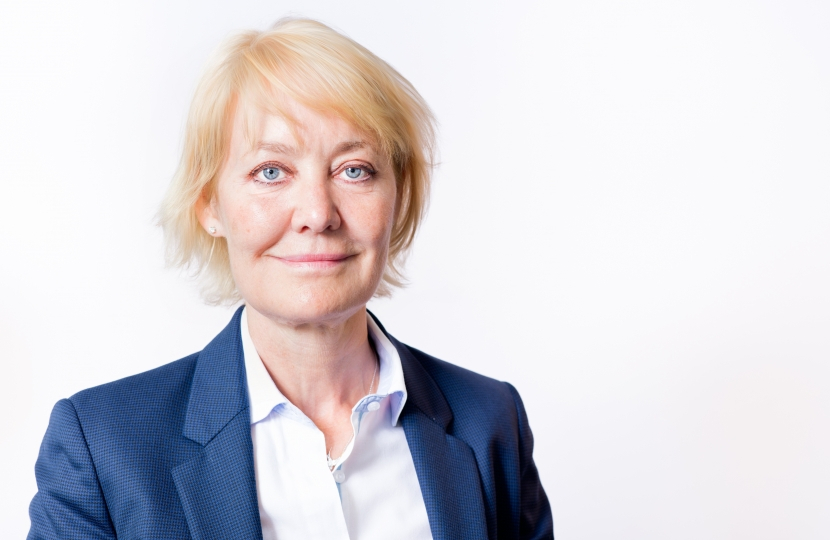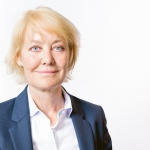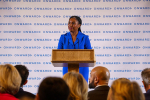
Column by Rachel Hood, cabinet member for education, SEND and skills at Suffolk County Council.
Despite it being the summer holidays and thousands of children and young people enjoying the very best of Suffolk in the sunshine, this week I would like to focus my attention on schools. In particular, two recently newsworthy subjects the forthcoming exam results and newly published figures pertaining to exclusions and suspensions.
As you know, especially if you are the expectant young person or their families, this Thursday is A-level results day. GCSE results are published next Thursday (August 25). I remember when my children were younger and the nervous wait for exam results unfortunately, it doesn't get any easier with practise or time. The disruption of the pandemic years on Suffolk's young people has been significant.
Students have spent many weeks learning online in their bedrooms or kitchen tables, or short periods within school just to face another lockdown, or even being unwell with Covid. It has been an acute struggle for pupils and schoolteachers.
The forthcoming exam results will therefore be a time for celebration and relief regardless of the grades obtained. The Department for Education is warning that some students may see an 'uneven impact' of the pandemic on their results, with many schools opting to teach differently through the two years of the pandemic.
Not all young people have been taught on an even playing field. The important thing to remember is the success and triumph of these students and helping them pick the right next steps in their education. I wish them all the best of luck.
You may have seen a newspaper article recently on newly released figures from the Department for Education on pupil exclusions in Suffolk. I wanted to share with you some context and background and also correct some misleading interpretations of the figures, which are complicated to dissect and understand.
It was reported that Suffolk has one of the highest exclusion rates in the country. The term exclusion refers to fixed term suspensions or permanent exclusions, which should absolutely be the last resort for headteachers and school governors. The decision to exclude a child rests with headteachers and is determined by guidance from the Department for Education.
Suffolk County Council recognises schools' autonomy in this matter but actively works to reduce the use of these sanctions. We work with schools - and robustly challenge where necessary - to address any high levels of suspension and exclusion, particularly where children have additional needs. Once a child has been permanently excluded, the council is responsible for securing new provision.
It is important to say that Suffolk County Council always reports accurate and timely figures. This exclusion data, which has been collated and released by the Department for Education, relates to 2020/21. As this was a pandemic year, children's education was greatly disrupted. It is widely believed that whilst the majority of children settled well when they returned to school, some children found it difficult to adjust to school boundaries.
In a few cases that led to increased numbers of exclusions. It has also been noted that where pupils were on the verge of exclusion pre-lockdown, some found themselves in difficulty when they returned to face-to- face education. Another explanation for the increase in figures is better recording of exclusions by schools. In the past, some schools were not recording all suspensions and in 2020/21 Suffolk County Council reaffirmed the importance of accurate data. This will have had an impact on the comparative performance.
The council accepts the figures for primary school suspensions and permanent exclusions are too high. There has been a trend in recent years of increasing numbers of exclusions and we continue to focus our efforts on understanding why this exists. A lot of action is being taken to improve these figures.
A report by this newspaper and on social media reported that children under four had been suspended in Suffolk. This is not the case. There has been 85 suspensions relating to 39 children in reception years in 32 Suffolk primary schools (79 % academy, 21% LA maintained).
This amounts to 13% of all primary schools and is a considerable concern. We are specifically focusing our efforts to work with schools who have a higher rate of exclusions. Some of the action we are taking include a new team who will visit schools and are dedicated to preventing permanent exclusions; a push for more schools to sign up the Inclusion Quality Mark which demands schools be more inclusive; officers from the SEND (special educational needs and disabilities) team working with schools to understand and support children in mainstream schools at risk of permanent exclusion; and greater support for school governors to enable them to advocate for children at risk.
It is encouraging to see that many schools in Suffolk do not exclude children - and this is testament to the hard work of the teaching staff and management team. However, we must ensure that all schools and settings apply the same criteria when dealing with challenging behaviour. I'd like to finish by wishing you all a very safe and happy summer holiday.
I hope our young people are rewarded with good grades for the hard work they have put in. My thanks once again to teachers who have worked tirelessly to deliver first rate education in the most challenging of circumstances.


